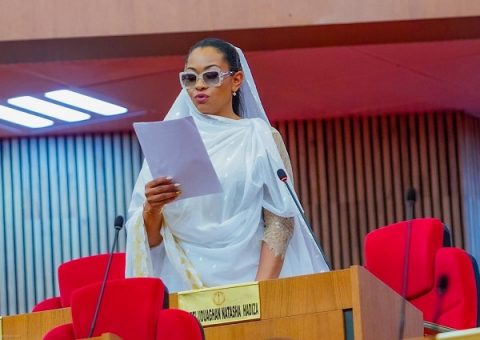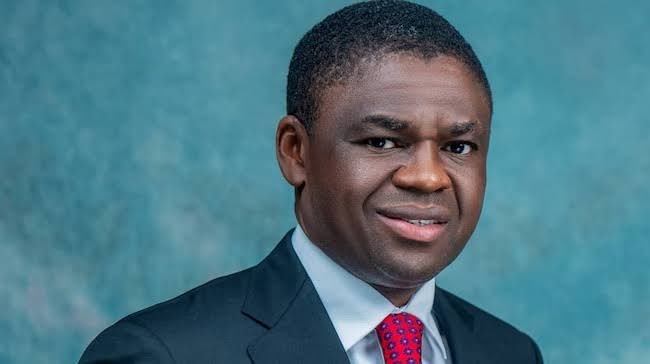The Senate Committee on Ethics, Code of Conduct, and Public Petitions has rejected the petition filed by Zubairu Yakubu, a constituent of suspended Senator Natasha Akpoti-Uduaghan, citing an ongoing legal case regarding the matter. The petition sought to address allegations of sexual misconduct made by Akpoti-Uduaghan against Senate President Godswill Akpabio. However, the Committee ruled that it could not proceed with the petition due to its status as a subject of litigation.
The hearing on Tuesday saw tension rise, particularly between Senator Onyekachi Nwebonyi (APC – Ebonyi South) and former Minister of Education, Dr. Oby Ezekwesili, who had accompanied Yakubu as a witness. Nwebonyi, visibly upset, clashed with Ezekwesili after she and other attendees refused to take an oath before the Committee. In response to the disagreement, Nwebonyi referred to Dr. Ezekwesili as an “insult to womanhood” and a “hooligan,” sparking a heated exchange.
Dr. Ezekwesili, later speaking to reporters, condemned the Senate’s actions, accusing it of violating the Nigerian Constitution. She argued that the Senate had elevated its internal rules above the country’s constitutional laws, which she claimed was unacceptable in a democracy. She further criticized the Senate for bypassing the constitutional requirement of a fair hearing, especially regarding the treatment of Akpoti-Uduaghan’s petition. Ezekwesili stressed that the procedural loopholes used by the Senate hindered the delivery of justice.
The petition, which was filed by Yakubu, had sought to compel the Senate to investigate the allegations made by Akpoti-Uduaghan against Akpabio. Yakubu expressed his disappointment over the Committee’s refusal to allow the suspended senator to testify, claiming that she held vital documentary evidence to support her claims. He lamented that Akpoti-Uduaghan had been barred from entering the National Assembly as part of her suspension, hindering her ability to present her case.
Counsel for the petitioner, Dr. Abiola Akinyode, also expressed concerns about the Senate’s handling of the case, arguing that the treatment of the petition was inconsistent and unfair. She pointed out that if the Senate dismissed Akpoti-Uduaghan’s petition, it would be contradictory to proceed with Yakubu’s petition under the same circumstances. Akinyode further criticized the Committee’s rationale for rejecting the petition, stating that the Senate should have informed the petitioner that it could not entertain the case due to the ongoing court proceedings rather than inviting him to the hearing only to dismiss the petition.
The Senate Committee’s decision to dismiss the petition amid such intense disagreements has raised further concerns about fairness and transparency within the legislative process. The matter has sparked widespread debate, with some questioning the objectivity of the proceedings and the potential influence of political interests on the outcome.




